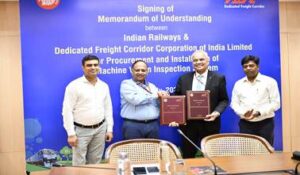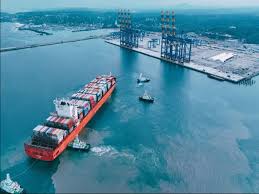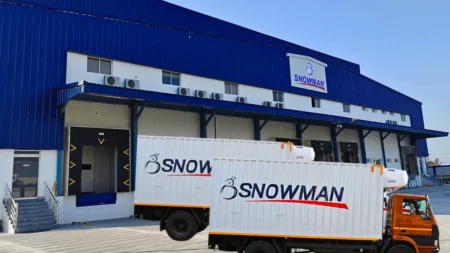Vaibhav Vohra, MD, Continental Carriers, explores pivotal trends in Indian auto logistics—digitalization, sustainability, and robust strategies. He anticipates the future impact of autonomy, electric vehicles, and blockchain.
Vaibhav Vohra elucidates that the automobile logistics landscape in India has undergone substantial evolution in recent years, propelled by technological innovation, shifting consumer behaviours, and regulatory reforms. The industry is adapting to these changes by embracing digital solutions, prioritising sustainability, and fostering collaboration across the supply chain.

Optimised logistics is pivotal, ensuring seamless material flow for sustained competitiveness
Improving last-mile connectivity has been a focal point in the evolution of automobile logistics. Companies are investing in optimising the final leg of the supply chain to ensure timely and secure delivery of vehicles to end consumers. With a growing emphasis on sustainability, the automobile logistics sector in India is increasingly adopting eco-friendly practices. This includes the incorporation of electric and hybrid vehicles in transportation fleets, as well as the implementation of green logistics strategies to reduce carbon emissions.
Logistic imperative
In the contemporary automotive landscape, a robust logistics strategy is imperative for manufacturers. The intricacies of the industry, marked by global supply chains and just-intime manufacturing, intensify the need to curtail costs while upholding stringent quality standards. Executing a refined logistics strategy is pivotal for manufacturers to sustain competitiveness, ensuring an unimpeded flow of materials and finished products throughout the supply chain. This optimisation directly influences costs, customer satisfaction, and overall operational resilience within the dynamic and challenging market environment.
Navigating the intricacies of customs, regulations, and transportation challenges becomes paramount in this global context. In essence, a robust logistics strategy serves as the linchpin for automotive manufacturers seeking to navigate the complexities of today’s fiercely competitive market, fostering efficiency, cost-effectiveness, and customer-centric operations.
Future shifts
The future of automobile logistics is poised to be shaped by several key trends. The integration of autonomous vehicles (AVs) in logistics holds the potential to significantly transform automobile transportation, promising increased efficiency, cost reduction, and improved overall logistics processes.
The rising adoption of electric vehicles (EVs) is another influential trend in automobile logistics. This shift introduces the necessity for specialised transportation, the establishment of charging infrastructure, and considerations for battery life—all of which will contribute to shaping future logistics strategies.
Moreover, the incorporation of blockchain technology emerges as a critical trend for enhancing transparency and security in the automotive supply chain.
Logistics best practices
- Preparation and Inspection: Conduct thorough pre-transport inspections, documenting existing damage and conditions. Properly prepare vehicles for transportation.
- Proper Packaging and Securing: Utilise appropriate equipment and methods to securely transport vehicles.
- Transportation Mode: Select transportation modes based on vehicle type and value. Plan routes carefully to minimise transit time.
- Handling and Unloading: Employ trained personnel for loading and unloading to minimise damage risk. Implement safety protocols during handling to prevent accidents.
Maintaining open customer communication throughout the logistics process is vital. Keeping customers informed about transportation progress and expected delivery times fosters transparency and satisfaction, aligning with the overarching goal of preserving the quality and condition of vehicles during their journey in the logistics chain.











